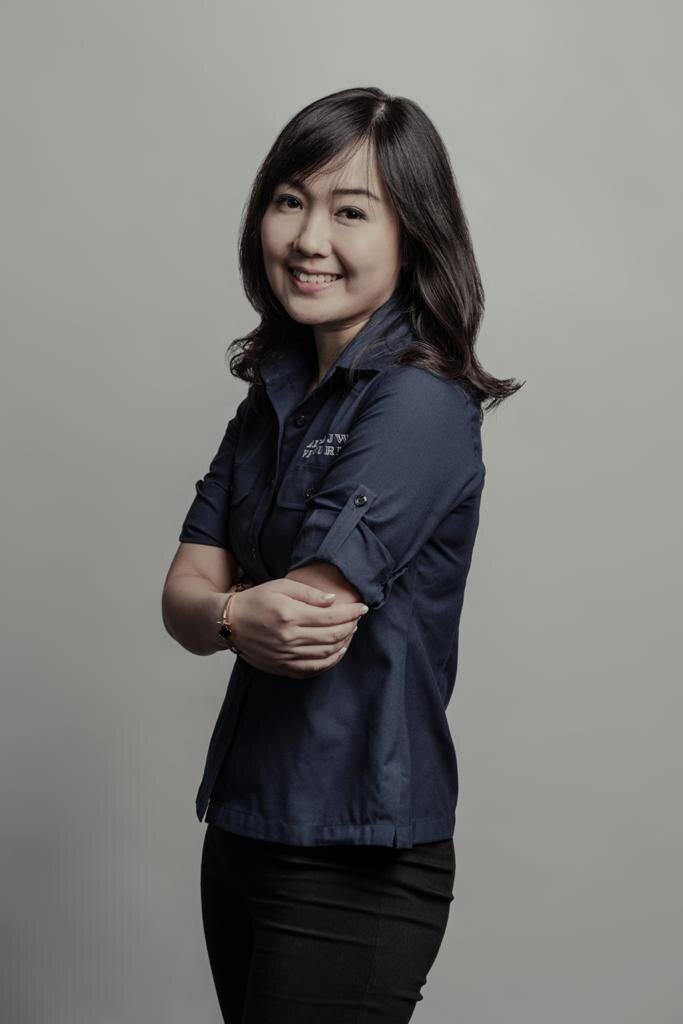Principal at Alpha JWC Ventures
Melina knew from the moment she started in the VC world that she wanted to be one of the pioneers in the rising, male-dominated industry. Having supported many startups to successfully grow, she wants to empower more women to lead and establish Indonesia’s next unicorn.
Dreaming of becoming a woman entrepreneur was not a common wish in the Yogyakarta of the 1990s, where Melina grew up. Most women around her were expected to get married in their Twenties and stay at home. But Melina looked up to her mother, co-running a small family business of building materials with her father. “We lived above the store, and I admired how she managed to take care of our family, running back and forth between the customers at the store downstairs and our home, to help me with my homework,” Melina recalls.
Freshly graduated in accounting, she joined the prestigious consulting group McKinsey in 2014, through a one-year program designed for local young graduates. Two years later, the global consultancy had created a sensation when it released a report foretelling Indonesia’s digital future and suggested that the country could become the seventh-largest economy by 2030. As a consultant, Melina’s work focused on projects exploring this digital transformation in the making, from the banking sector to e-commerce development and technology empowerment. From there, she made it her goal to spearhead the digital shift her country was undergoing. Local venture capital firms were still few in Indonesia, and Melina saw it as the most appropriate structure to support and scale the fast-growing tech ecosystem. She joined the just-established Alpha JWC Ventures firm, despite knowing that this burgeoning VC industry was a male-dominated one.
Over the last three years at Alpha JWC Ventures, Melina has spurred over 15 investments, including major Indonesian startup success stories such as the coffee chain Kopi Kenangan, and the tech capsule hotel Bobobox. She has also seen the industry becoming more gender diverse. Alpha JWC Ventures has not taken any official pledge for GLI and doesn’t use a specific approach towards gender equality. However, women are represented at all levels of the firm’s pyramid and the firm continuously tries to improve gender diversity at the board levels of their portfolio enterprises.
Melina supports a more open conversation about investing with a gender lens. Misconceptions that GLI would imply a lower filter are still widespread. “Plenty of data prove that enterprises who better take women into consideration increase their profit margins; this is verified in all business aspects of a enterprise: from the management point of view, to the recruitment point of view and the product point of view”, she stresses.
This does not mean applying a double standard though. “One female founder told me that she was once questioned by investors after a pitching session, if she was married or planned to have kids, because if that’s the case they wonder how the enterprise could grow or sustain itself. This is something you would not see happen to male founders”, Melina relates. Women don’t want to be treated as people with special needs, or doomed to face work constraints in the future. In Melina’s words, “We don’t want words like ‘it should be hard for you’. Don’t lower expectations towards women or treat them as if they have more limitations and hence do not deserve equal opportunities”.
To her, it is also ironic on how the local society sometimes relates women to marital status and expectations. Single career women are often said “to have their own limits one day”, working mothers are “forced to make sacrifices”, and divorced ones are “unable to commit”. Even when they are not verbalized, these ideas still govern some business decisions and indirectly contribute to the gender promotion and funding gap. For her part, Melina makes sure that before investing in women, investors first start to look at them through a fairer lens.





